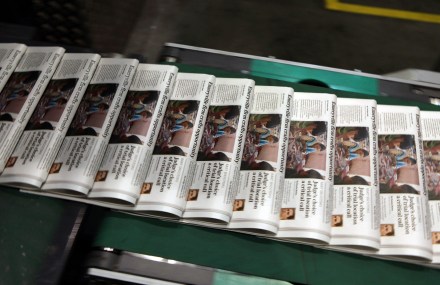Annals of Ahistorical Bedwetting: Simon Jenkins Edition
Amidst the usual stiff competition this week’s palm for Most Abject Commentary goes to Sir Simon Jenkins for this truly miserable column on the aftermath and implications of the shootings in Tucson. It’s not entirely clear what Jenkins is trying to say but since he writes that “Freedom can only flourish in a climate of discipline” and concludes with “If American politics is now going the way of wounding, not healing, it needs the tonic of order. It is the great paradox of democracy. Free speech cannot exist without chains” it seems reasonable to conclude he thinks some kind of Jenkins-friendly authoritarianism would be preferable to the vulgar, boorish, messy




